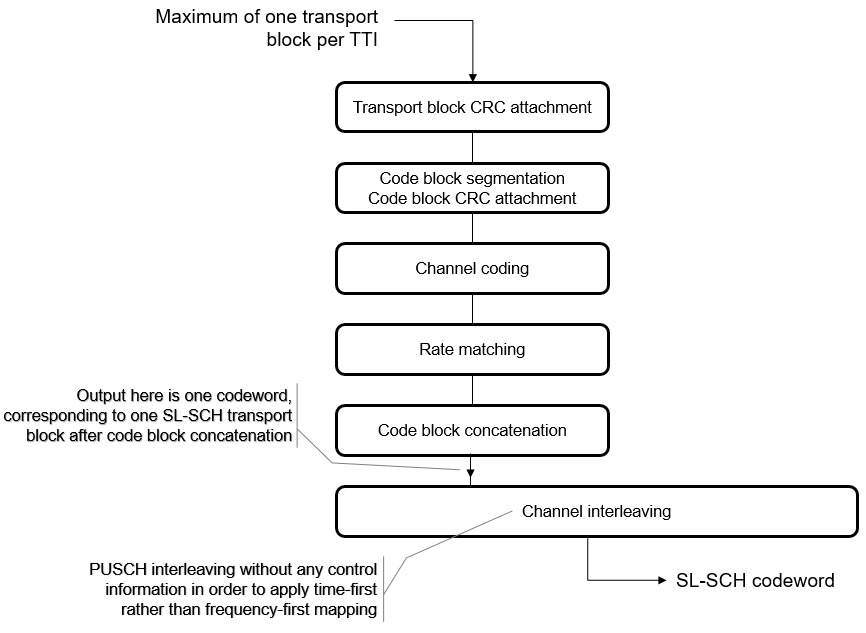lteSLSCHDecode
Sidelink shared channel decoding
Syntax
Description
trblkout,blkcrc,stateout =
lteSLSCHDecode(ue,trblklen,cwin)trblkout,
decoded from the soft log-likelihood ratio (LLR) codeword data vector cwin for
the specified UE settings structure and transport block length. Additional
outputs contains the result from a block cyclic redundancy check, blkcrc and
a structure containing the HARQ process decoding state, stateout.
The SL-SCH decoder processing includes PUSCH deinterleaving, rate recovery, turbo decoding, block concatenation, and CRC calculations. The SL-SCH decoder performs the inverse of the sidelink shared channel processing defined in TS 36.212 [1], Section 5.4.2. For more information, see Sidelink Shared Transport Channel Processing.
[ accepts
an input structure specifying the initial HARQ process state that
is used in support of HARQ soft combining.trblkout,blkcrc,stateout]
= lteSLSCHDecode(ue,trblklen,cwin,statein)
The stateout array is normally reapplied
via the statein argument of subsequent lteSLSCHDecode function
calls, as part of a fixed sequence of HARQ retransmissions used by
the SL-SCH. When a transport block is transmitted, it is always sent
four times on four consecutive PSSCH subframes using the fixed RV
sequence of {0,2,3,1}. The consecutive PSSCH subframes are selected
from a subset of the PSSCH subframe pool. The statein and stateout variables
allow this set of transmissions to be soft combined.
Examples
Input Arguments
Output Arguments
More About
References
[1] 3GPP TS 36.212. “Evolved Universal Terrestrial Radio Access (E-UTRA); Multiplexing and channel coding.” 3rd Generation Partnership Project; Technical Specification Group Radio Access Network. URL: https://www.3gpp.org.
[2] 3GPP TS 36.321. “Evolved Universal Terrestrial Radio Access (E-UTRA); Medium Access Control (MAC) protocol Specification.” 3rd Generation Partnership Project; Technical Specification Group Radio Access Network. URL: https://www.3gpp.org.
Version History
Introduced in R2016b
